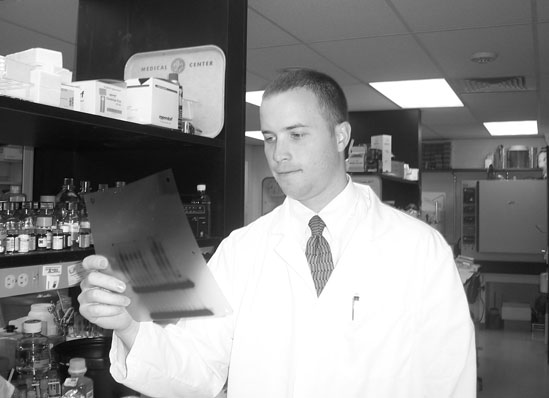The Institute of Neural Regeneration and Tissue Engineering is a non-profit charitable organization founded with the goal of studying challenging neurological problems and ultimately improving the lives of people who suffer from strokes, spinal cord injuries, traumatic brain injuries, and neurodegenerative diseases. Such conditions have few if any effective treatments, and our primary focus is on scientific research work that will translate the basic sciences of today into the biomedical technologies of the future, particularly in terms of reconstructing and regenerating functional tissues of the body. We seek to understand the fundamental basis of a variety of neural tissue functions and dysfunctions, from molecular, cellular, and human perspectives. As an institute directly involved in ground-breaking research, our funding and donations go directly towards the research and development of novel advancements in our knowledge and new therapies that will help us better understand, treat, and cure neurological diseases. The Institute has already made many significant scientific discoveries and advancements, as described through several highly impactful scientific publications, thereby providing important insights in the fields of tissue engineering, stem cell biology, and regenerative medicine.
The Director of the Institute is Dr. Richard McMurtrey MD, MSc, who is an accomplished physician, surgeon, scientist, and engineer. He holds degrees with highest honors in medicine and surgery, biomedical engineering, and neuroscience, and he was distinguished as one of the top innovators for his work and ideas at the University of Oxford. He co-authored the textbook Stem Cells and Development, and he has made significant advancements in stem cell biology, regenerative medicine, minimally-invasive surgical interventions, neuroscience, pharmacology, biomedical engineering, exercise physiology, and critical care medicine. Many of his research ideas were ahead of their time, rejected as "unlikely to work" by NIH grant reviewers, but since proven to not only work but to be highly fruitful avenues of research that have since been taken up by research groups at several of the most well-known research institutions, and he has earned several awards and honors for this research work. Dr. McMurtrey trained in neurosurgery, orthopedic surgery, general surgery, anesthesiology, and critical care, with significant time spent working in trauma surgery, spine surgery, orthopedics, intensive care, pain management, and interventional surgical procedures. Dr. McMurtrey has personally funded the vast majority of his work with his own funds simply because he loves scientific discovery, with all donations to the Institute only being used for equipment and supplies. Highlights of Dr. McMurtrey's research work include:
- Discovery of novel 3D neural tissue constructs with biochemically-functionalized nanofiber architecture enabling enhanced capabilities to achieve extended neurite outgrowth and directional control in three dimensions.
- Discovery of new neuroprotective mechanisms in stroke and ischemia, including the role of certain glutamate, calcium, and adenosine signaling pathways and their interaction with volatile anesthetic agent mechanisms.
- Discovery of the effects of certain regions of alternative splice variants of the CaMKII enzyme, including effects on neuromodulation and dendritic arborization in neurons.
- Discovery of unique electrophysiological phase-locking responses in auditory neural networks when processing harmonious versus dissonant acoustics.
- Discovery of molecular coatings for neural implant devices that aim to enhance integration and biocompatibility within neural tissue.
- Discovery of novel models of diffusion and metabolism dynamics in 3D tissue constructs and stem cell-derived organoids, holding many important implications for 3D tissue culture, stem cell differentiation, and development of brain architecture.
- Creation of electrically-active 3D neural tissue structures (including cerebral organoids or "mini-brains") using induced pluripotent stem cells (iPSCs) derived from adult human cells and embedded in unique multi-compartmental biomaterial designs that help reconstruct specific regions and structures of the brain.
Dr. McMurtrey’s research focuses on tissue engineering, stem cell biology, regenerative medicine, physiology under conditions of extreme stress (injury or athletics), and molecular mechanisms and strategies for improved critical care recovery and controlling stem cell regenerative approaches to injury and disease. In addition, his clinical research work also examines neuroregeneration, neuromodulation, and neuroprotective mechanisms, which holds potential for novel therapeutic interventions in stroke, traumatic brain injury, spinal cord injury, neuropathy, and neurodegenerative diseases [such as Parkinson's disease, Alzheimer's disease, Huntington's disease, and Lou Gehrig's disease, or amyotrophic lateral sclerosis (ALS)]. Dr. McMurtrey has also made advancements in the development of biomedical devices and novel neural interfaces, including new biomolecular coatings for neural implants that may improve biocompatibility, function, and duration of implanted tissues and devices. Altogether, this work will be essential in the advancement of therapeutic interventions that will usher in the most significant advancements in functional recovery over the next several years.
Dr. McMurtrey also runs the Alpine Spine & Orthopedics Clinic, which seeks to implement the most effective cutting-edge interventional therapies and regenerative medicine for a wide-variety of acute and chronic clinical conditions, particularly injuries of the spine, nerves, joints, tendons, ligaments, and muscles. A vast amount remains to be discovered regarding the workings of the human body, and this work seeks to unravel and understand these mysteries, while also translating these discoveries into meaningful therapeutic interventions that will improve quality of life for millions of people around the world.
Curriculum Vitae of Dr. Richard J. McMurtrey

|
